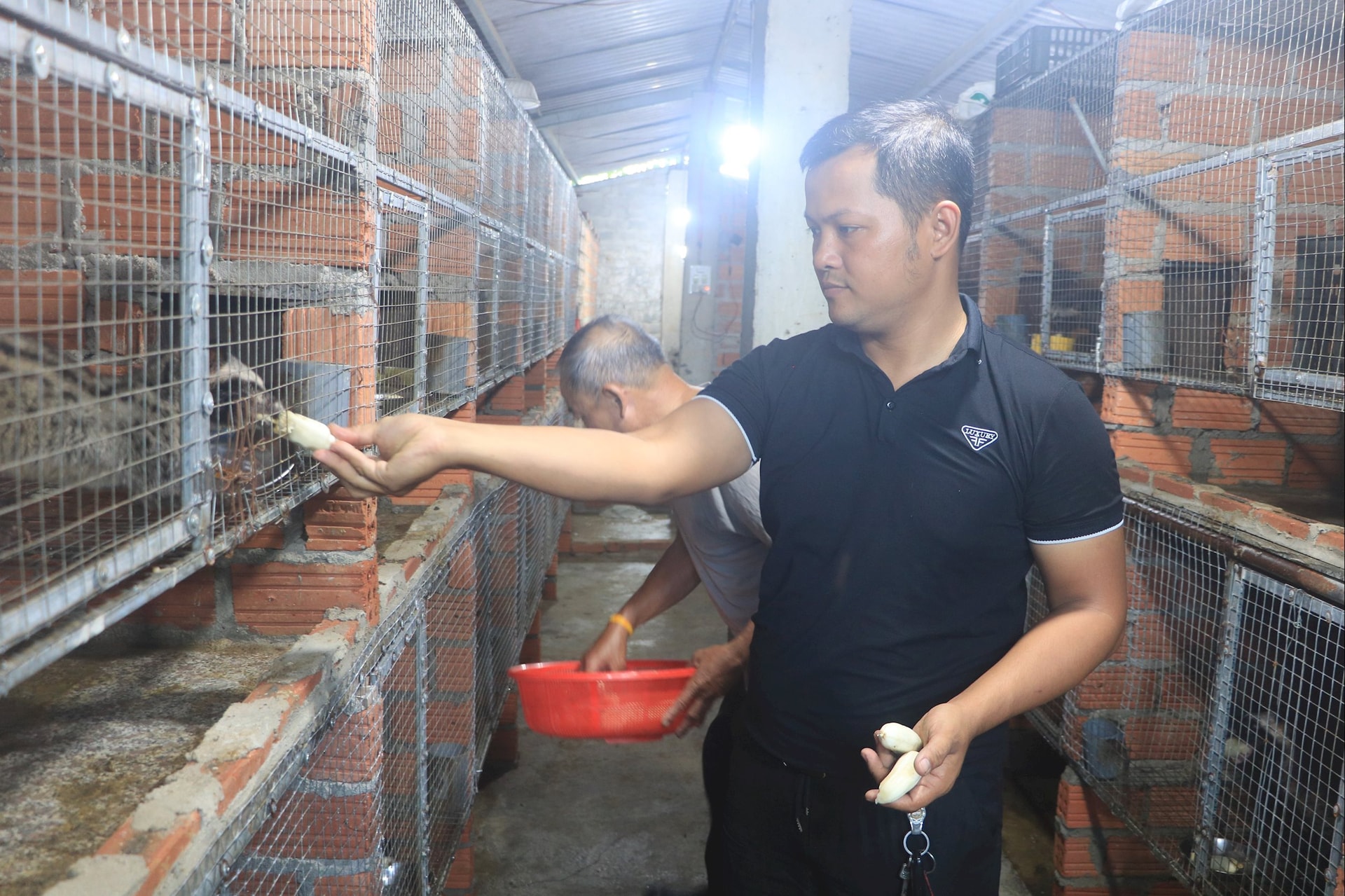
Towards sustainable development
Mr. Henh's opportunity to enter the profession began in 2021. At that time, he realized that the market demand for commercial civets (civets) was increasing, while in Da Nang there were not many models of raising this species.
With a spirit of learning, he boldly experimented with the model of raising civet cats in a 300m² barn at his house in Lien Chieu ward.
During the raising process, he actively sought knowledge through documents and exchanged experiences with breeders in other localities to improve his techniques.
“The initial investment cost for breeding is very high. In 2021, I bought a pair of breeding civets for about 30 million VND, and the male civet was bought for 45 million VND. The total of the 4 initial breeding animals was nearly 120 million VND, which was a big investment,” Mr. Henh recalled.
From the initial breed, he multiplied the herd by exchanging breeds with other households to ensure gene sources, increase reproductive capacity and resistance of livestock.
Thanks to his mastery of techniques, adherence to regulations on raising wild animals and persistent care, his civet herd has grown steadily. To date, Mr. Henh’s farm has more than 130 civets, with the peak reaching nearly 200 civets.
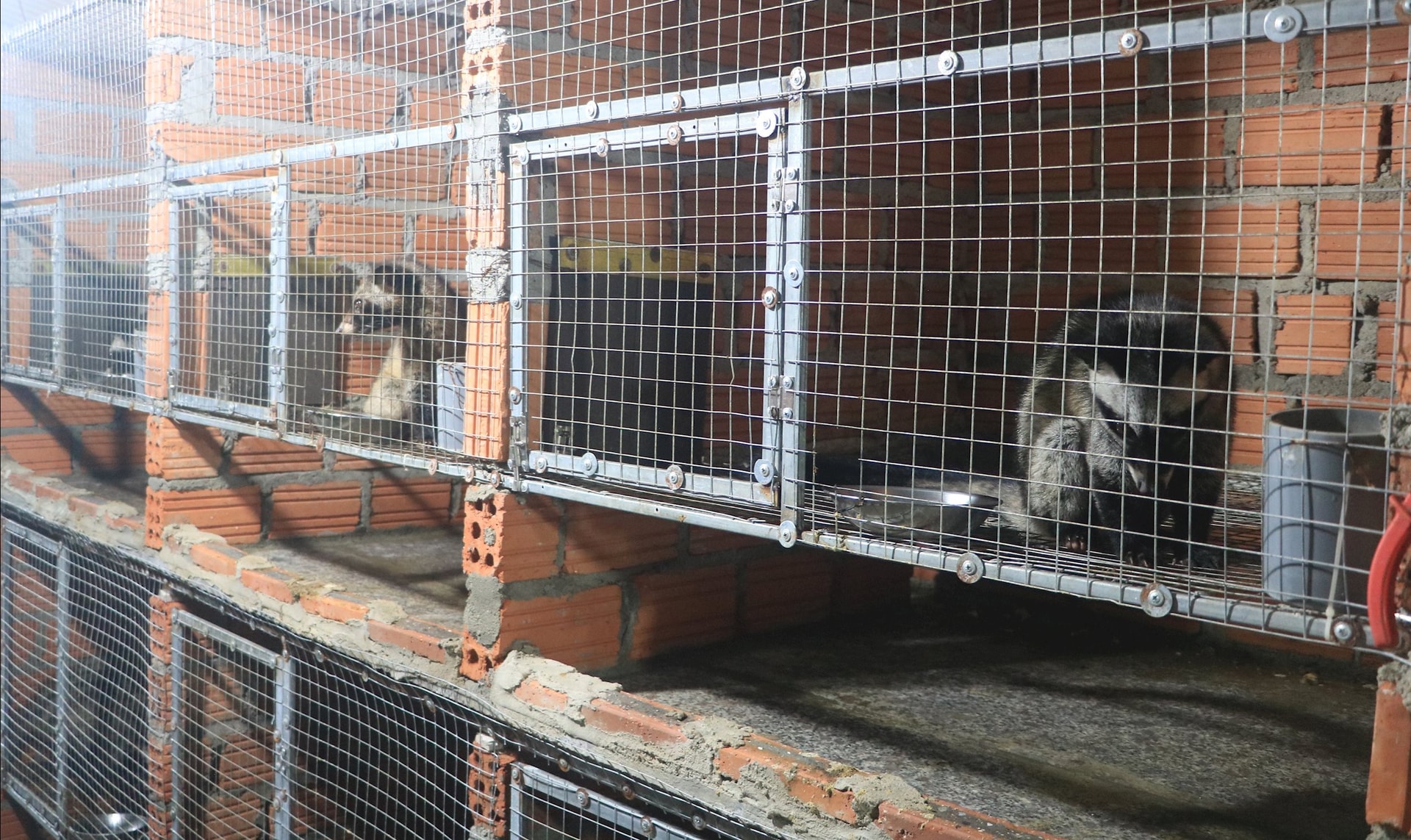
In 2024, to expand livestock farming, Mr. Henh invested in an additional barn area of more than 200 square meters in Ba Na commune. This place is designed to be airy, separate, ensuring hygiene and biosafety conditions.
“Civets are very adaptable to the climate of the Central region and are easy to care for. It is important that breeders know how to control food sources, nutrition and keep the breeding environment clean to limit odors and avoid spreading diseases to the livestock,” he shared.
Besides, Mr. Henh said that compliance with regulations on wildlife farming is a prerequisite for the model to operate legally and sustainably.
Every individual on his farm is registered, assigned a management code and has a clear origin, thereby creating trust with customers.
[ VIDEO ] - Civet farming model of Mr. Nguyen Trung Henh:
Improve the economy for farmer members
After more than 4 years of perseverance, Mr. Henh's civet farming model has shown clear economic efficiency. On average, each civet after about 8 months will reach a weight of 2.5 - 3 kg, meeting the standards for sale, with prices ranging from 1.4 - 1.7 million VND/kg.
Besides, his baby and breeding civets are also sought after by many other breeders in the area and neighboring localities.
The main food sources for civets are fish, ripe bananas, calcium worms, tubers, etc. Thanks to good control of nutrition and the barn environment, the livestock are healthy and reproduce regularly, helping him earn an average profit of more than 300 million VND per year.
The economic value of civets is very high if raised properly. I always advise buyers carefully, guarantee the breed in the beginning and provide technical guidance so that they can feel secure in raising them. Because raising wild animals is a special field, farmers need to strictly comply with legal regulations to develop sustainable livestock farming.
Mr. Nguyen Trung Henh
Not only stopping at the existing livestock model, Mr. Henh is planning to expand the scale to 500 - 1,000m² and develop a circular agricultural model, including raising calcium worms to use as food for civets.
Mr. Hênh plans to experiment with raising some more permitted animal species such as pheasants, sika deer, etc. to create biodiversity and increase economic efficiency.
“The biggest difficulty now is still investment capital, because the cost of barns, seeds and food are all high. If farmer members have a clear direction, and are supported by functional agencies and localities with loans and techniques, I believe this model can develop sustainably, creating more jobs and stable income for people,” Mr. Henh shared.
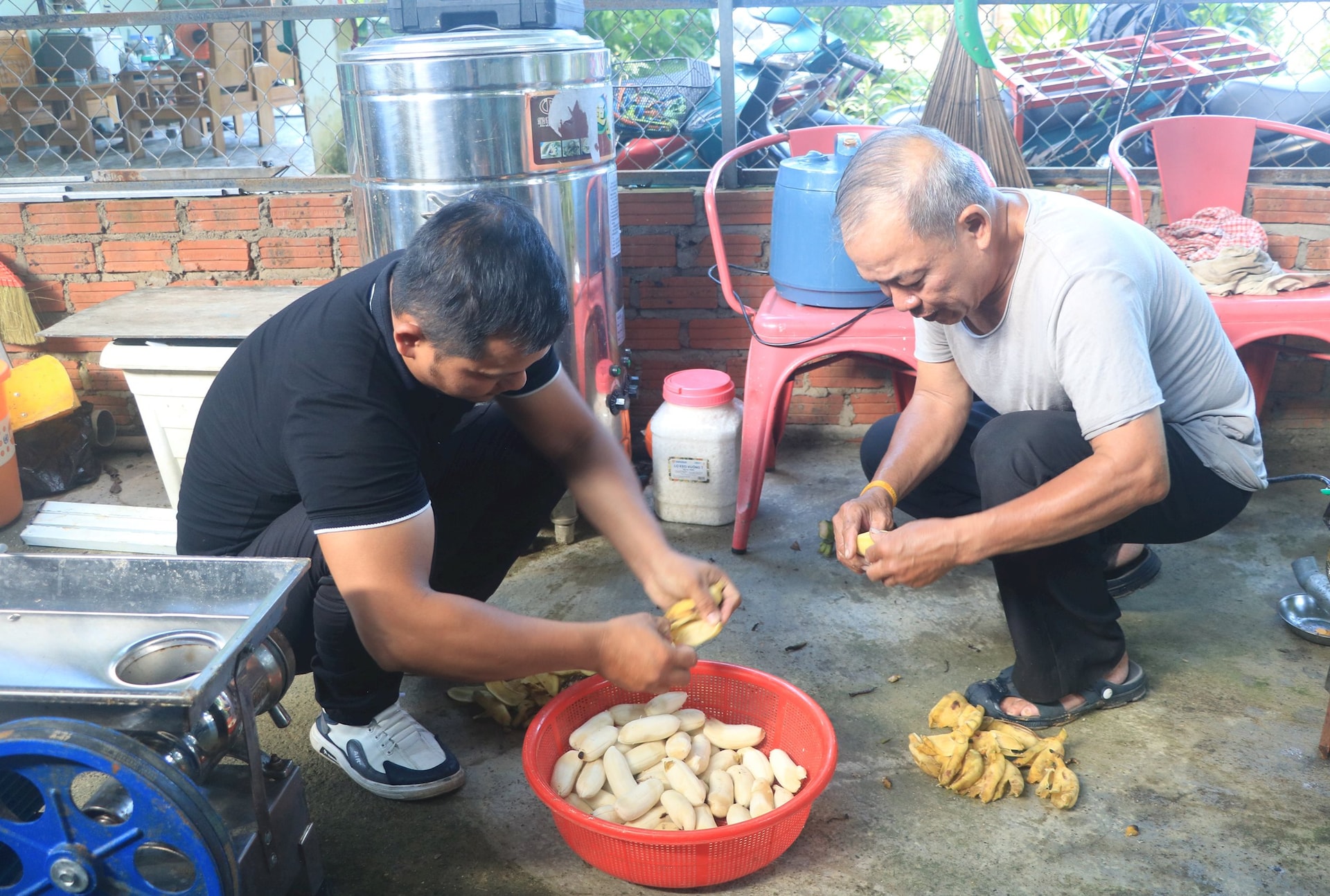
Chairman of the Farmers' Association of Lien Chieu Ward Tran Quang Vinh assessed that the civet raising model of Mr. Nguyen Trung Henh is a direction in line with the trend of sustainable agricultural economic development, contributing to diversifying people's livelihoods.
Not only does it create a stable income for the family, the model also has positive propaganda value in legally raising wild animals, raising awareness of nature conservation.
From a small-scale farming household, member Nguyen Trung Henh has become one of the typical examples of progress in developing agricultural household economy. The Ward Farmers' Association has replicated the model for 4 members in the area.
“The Ward Farmers’ Association coordinated with the City Agricultural Extension Center (under the Department of Agriculture and Environment) to organize training on biosafety livestock farming and replicate it for members in the area. Thereby, replicating and developing household economy for local farmer members,” said Mr. Vinh.
Source: https://baodanang.vn/hieu-qua-mo-hinh-nuoi-cay-voi-huong-o-phuong-lien-chieu-3308726.html


![[Photo] Touching scene of thousands of people saving the embankment from the raging water](https://vphoto.vietnam.vn/thumb/1200x675/vietnam/resource/IMAGE/2025/10/30/1761825173837_ndo_br_ho-de-3-jpg.webp)
![[Photo] The Third Patriotic Emulation Congress of the Central Internal Affairs Commission](https://vphoto.vietnam.vn/thumb/1200x675/vietnam/resource/IMAGE/2025/10/30/1761831176178_dh-thi-dua-yeu-nuoc-5076-2710-jpg.webp)
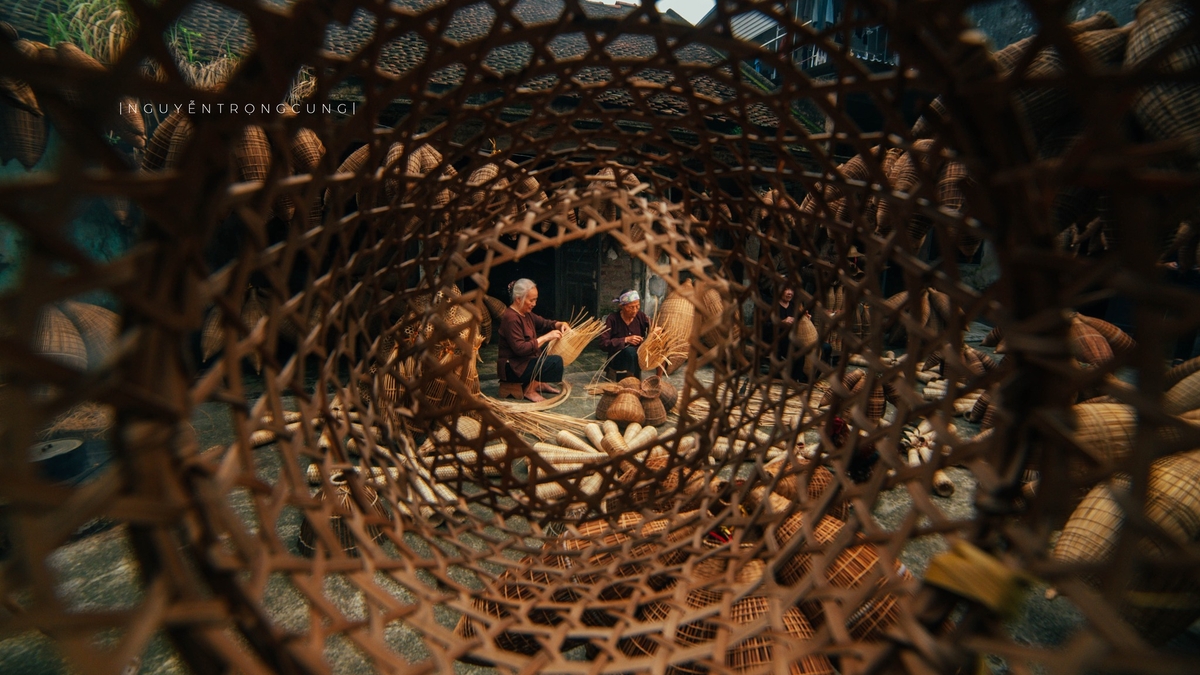
![[Photo] General Secretary To Lam meets former British Prime Minister Tony Blair](https://vphoto.vietnam.vn/thumb/1200x675/vietnam/resource/IMAGE/2025/10/30/1761821573624_tbt-tl1-jpg.webp)
![[Photo] General Secretary To Lam attends the Vietnam-UK High-Level Economic Conference](https://vphoto.vietnam.vn/thumb/1200x675/vietnam/resource/IMAGE/2025/10/30/1761825773922_anh-1-3371-jpg.webp)
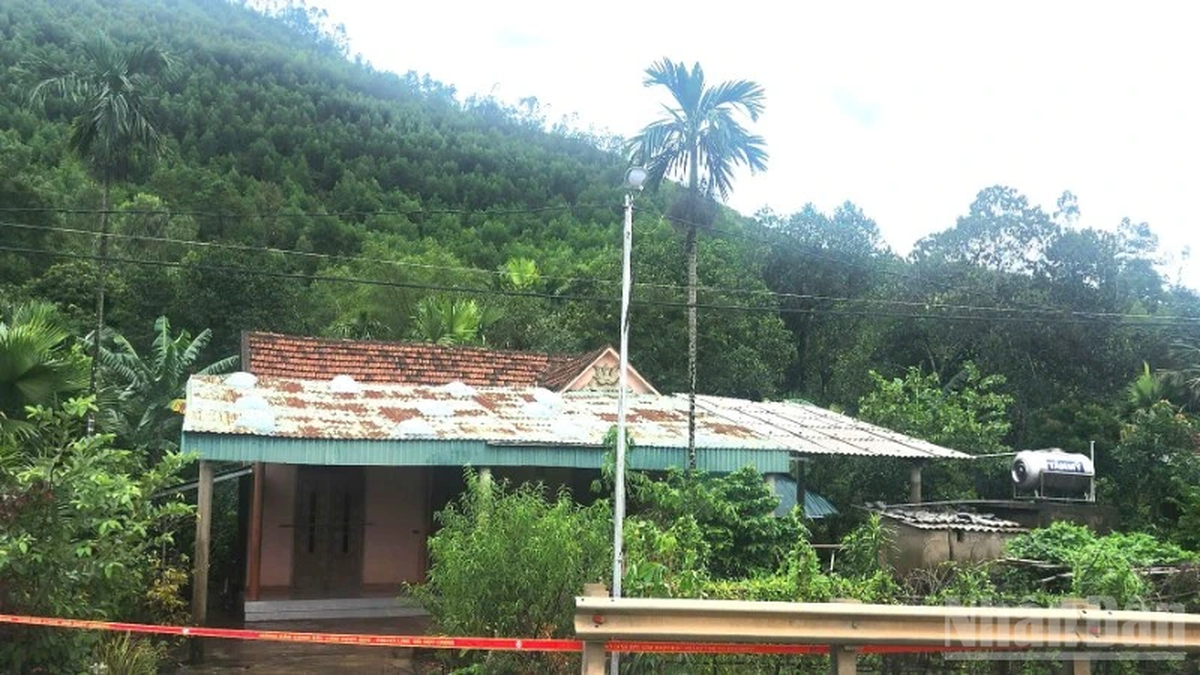


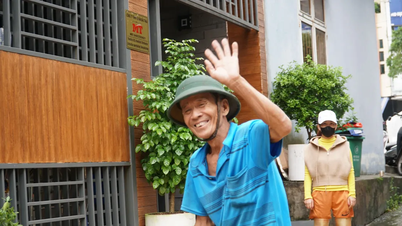



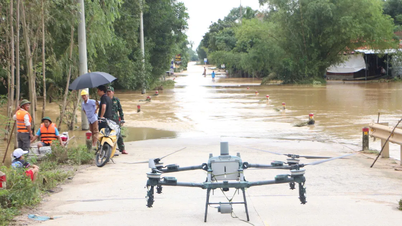
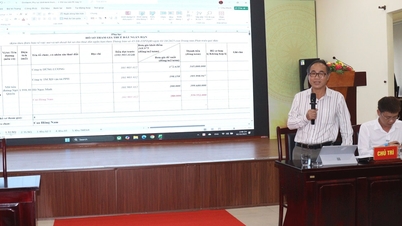


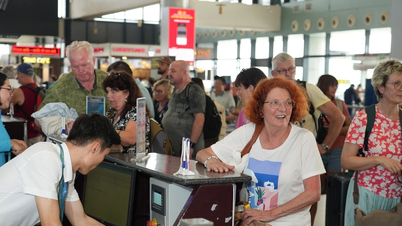





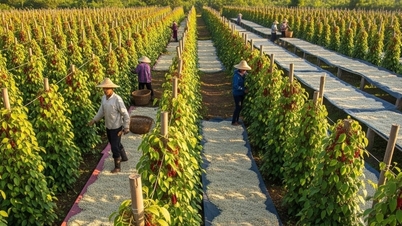
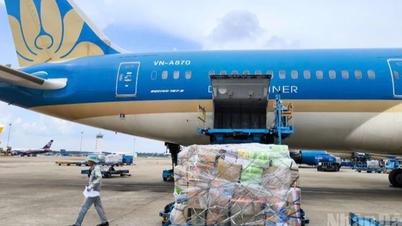
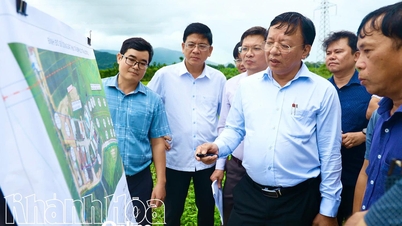





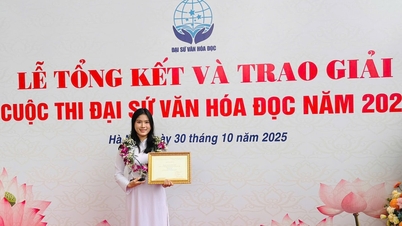
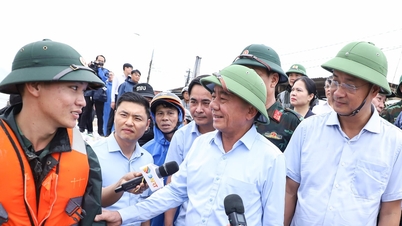
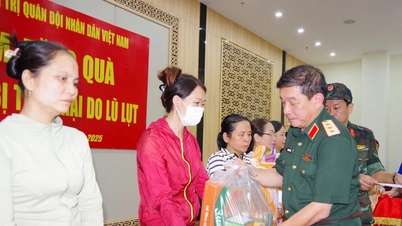
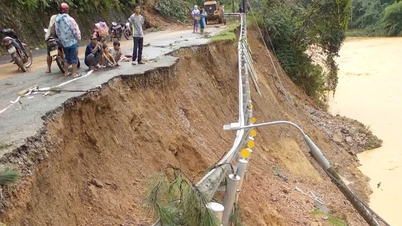
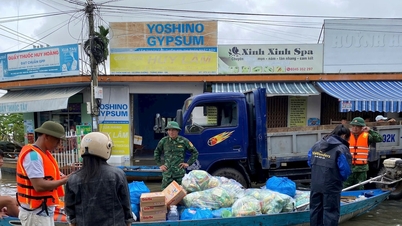
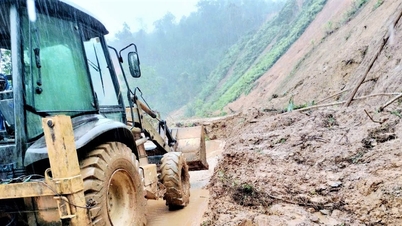




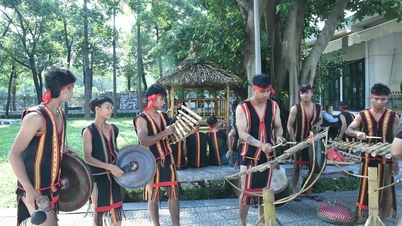

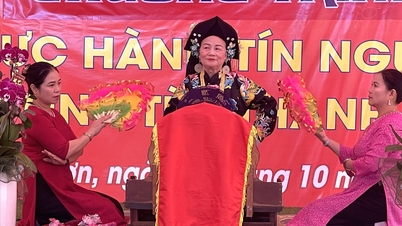






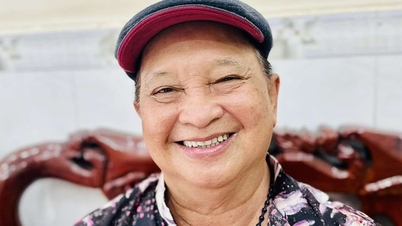

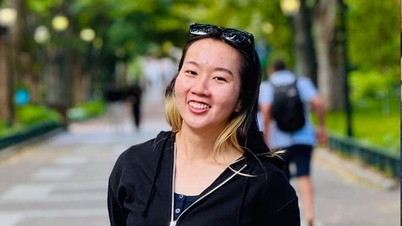

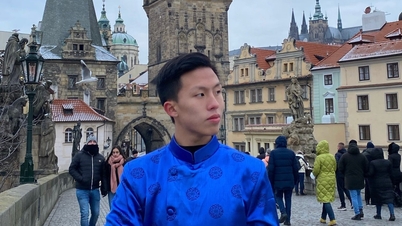

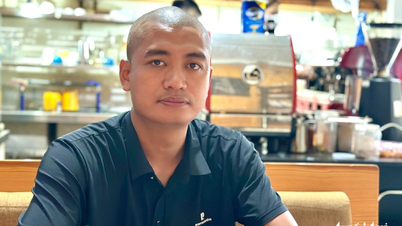

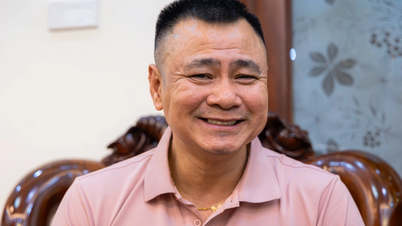

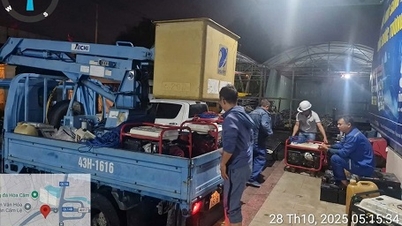

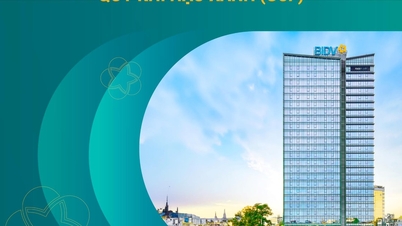

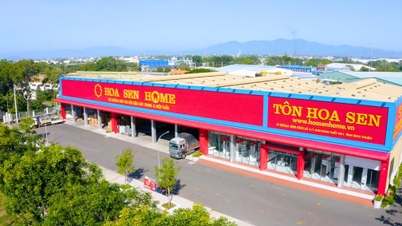
















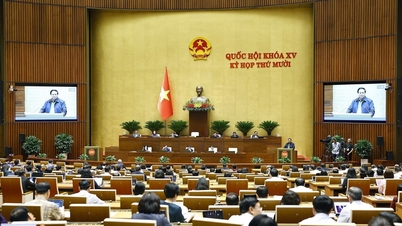
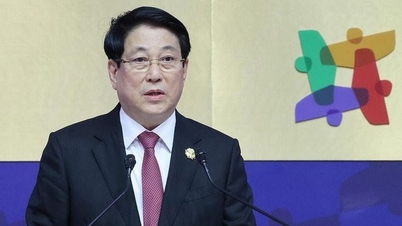
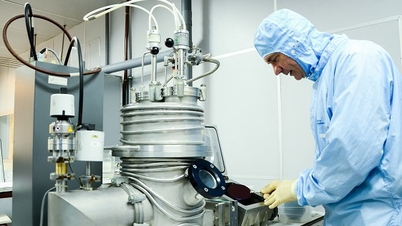

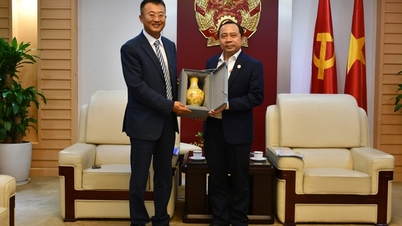
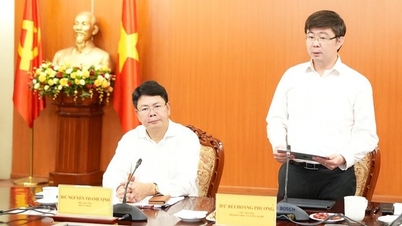
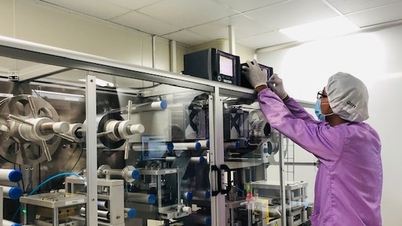
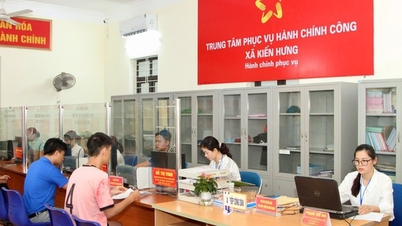
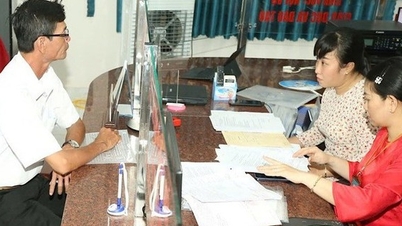
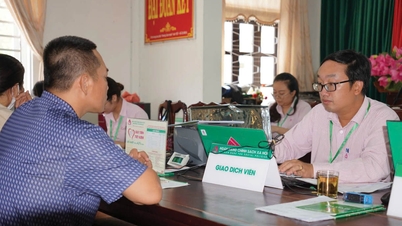

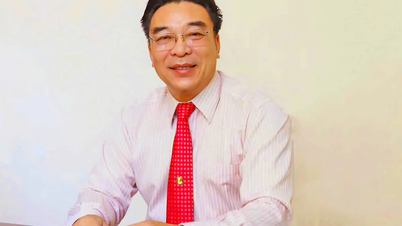

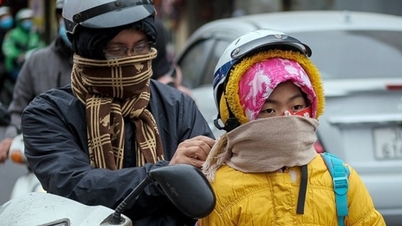

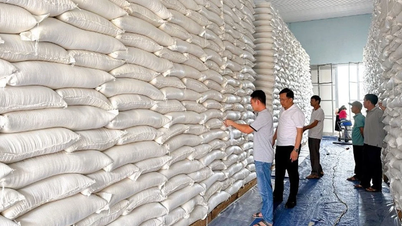















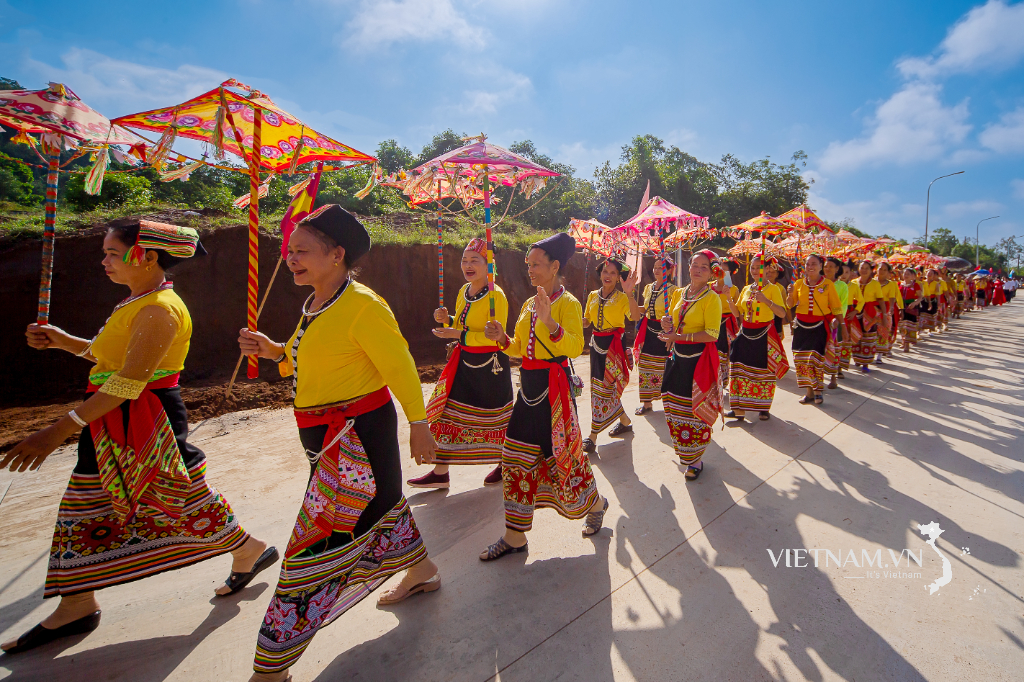
Comment (0)